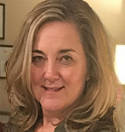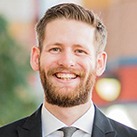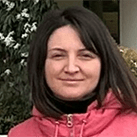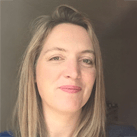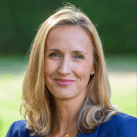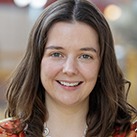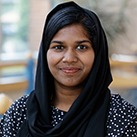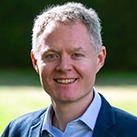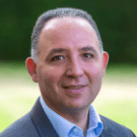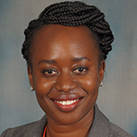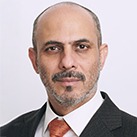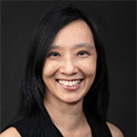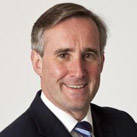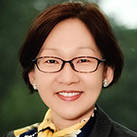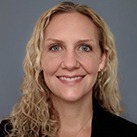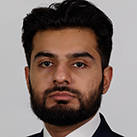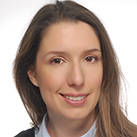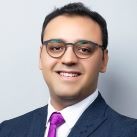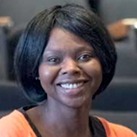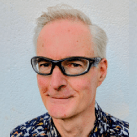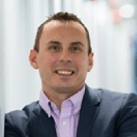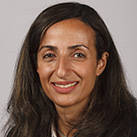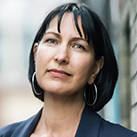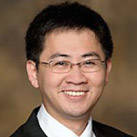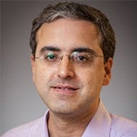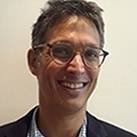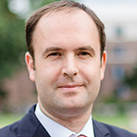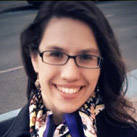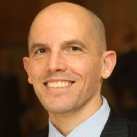Based at the University of Cambridge Judge Business School, the Cambridge Centre for Alternative Finance (CCAF) is run by its Executive Team and governed by an Oversight Committee.
Executive team
Bryan Zhang
Co-founder and Executive Director, Cambridge Centre for Alternative Finance
Bryan is a Co-Founder and the Executive Director of the Cambridge Centre for Alternative Finance (CCAF) at Cambridge Judge Business School, University of Cambridge. He has a decade of experience in researching technology-enabled financial innovation and its interplay with regulation, supervision and policy nationally, regionally and globally.
Bryan has led and co-authored more than 50 reports on fintech market trends, industry dynamics, regulatory changes and innovation as well as digital financial inclusion. He has advised and collaborated with numerous organisations including central banks, financial regulatory authorities, supervisory agencies, international corporations, multilateral development institutions and global standard-setting bodies.
Bryan joined the Board of the Financial Conduct Authority (FCA) as a Non-Executive Director in February 2024. He is also a member of Bank of England and HMT’s CBDC Engagement Forum, IMF’s FAS Advisory Group, OECD’s Steering Group on SME & Entrepreneurship Finance and the Bretton Woods Committee. He co-chairs the Future of Global FinTech Initiative, a collaboration between CCAF and the World Economic Forum. He also served as the Independent Chair of a Strategic Working Group (SWG) that looks at the future development of Open Banking in the UK, appointed by the Joint Regulatory Oversight Committee (JROC). Bryan was educated at Cambridge and Oxford universities.
Sara Coupe
HR Lead, Cambridge Centre for Alternative Finance
Sara joined the CCAF to coordinate the Catalyst Fund Inclusive FinTech Internship Programme, a collaborative project between the CCAF and the Catalyst Fund. Sara’s work involved recruiting, onboarding, training and supporting interns on the CF programme. Once this project was completed, she moved to become the HR Lead for CCAF.
Sara’s background is in HR and she is a member of the Chartered Institute of Personnel and Development. Prior to joining the CCAF, she ran her own HR consultancy business working with SMEs for five years and also taught on an MBA programme for the Open University Business School. Sara studied history at the University of York and this continues to be a great interest. She previously lived in the US and was a walking tour guide in Boston.
Douglas Arner
Associate Director – Research Programmes, Cambridge Centre for Alternative Finance
Douglas focuses on the interlinkages between finance, technology and broader sustainable development. He is the Kerry Holdings Professor in Law and RGC Senior Research Fellow in Digital Finance and Sustainable Development at the University of Hong Kong, where he is also a Senior Fellow of the Asia Global Institute, Associate Director of the HKU-Standard Chartered Foundation FinTech Academy, a Member of the Management Committee of the Techno-Entrepreneurship Core, and Faculty Director of the Law, Innovation, Technology and Entrepreneurship Programme (LITE).
He is a non-executive director of NASDAQ-listed early-stage biotechnology development firm Aptorum Group, a Senior Fellow of the Program on International Financial Systems and of the University of Melbourne School of Law, a PRIME Finance Expert, an Advisory Board Member of the European Banking Institute, SuperCharger Ventures, Policy 4.0, Alliance for Innovative Regulation, Digital Education Council, and Centre for Finance, Technology and Entrepreneurship (CFTE), and co-founder of the Asia Pacific Structured Finance Association.
He leads the largest FinTech online course on edX, now with over 130,000 participants drawn from (almost) every country in the world. Douglas has published twenty books and more than 200 articles, chapters and reports on finance, technology, regulation and development, including most recently FinTech: Finance, Technology, Regulation (Cambridge University Press 2024, with Ross Buckley and Dirk Zetzsche). Douglas has worked with governments, central banks, financial regulators and international organisations around the world on strategies to support financial sector development.
Hunter Sims
Associate Director of Business & Operations, Cambridge Centre for Alternative Finance
Hunter’s research interests are in digital payments, financial inclusion, open banking and more broadly frontier market investing. Prior to joining the Centre, Hunter worked in the finance industry, beginning his career in corporate banking in the United States, later transitioning to Rwanda to facilitate a turnaround plan and digital transformation strategy at a microfinance bank as Head of Credit. This included the implementation of a USSD-enabled digital payments platform enabling the disbursement and collection of credit via an agent network to 200,000+ clients across the country. Hunter holds an MBA from the University of Cambridge with a Concentration in Finance.
Centre staff
Gulgun Afacan Adanir
Learning Technologist, Capacity Building and Education, Cambridge Centre for Alternative Finance
Gulgun Afacan Adanir is a learning technologist at Cambridge University Centre for Alternative Finance (CCAF).
She has a pivotal role in the development of instructional content for various CCAF online courses, including CDAR, CFTRI, COBOF, and CDAE. She also works on collection and analysis of participant data for the improvement of online programmes. She completed her bachelor’s degree in Instructional Design in Turkiye.
She holds MSc and PhD degrees in Information Systems with a focus on online learning. Before joining CCAF, she worked at Ankara University, Turkiye, as an academician, teaching ICT courses, developing online course content, and conducting research.
Her research interests include online learning, social media, and computational thinking. She has authored several publications, which are accessible via the provided link.
Kate Belger
Administrator, Cambridge Centre for Alternative Finance
Kate’s role focuses on multi-tasking day to day administrative activities of the Centre. She brings a wealth of experience of administrative practice from across the University of Cambridge having started in the Faculty of Mathematics supporting a small team of academics. Her College work includes events and fundraising at Girton and Murray Edwards colleges, plus communications for the Mistress’ office, Girton College.
Outside of work and family, Kate is happiest on the river where she has enjoyed international rowing races from the Cam, Cambridge, to the Grand Canal, Venice. She is a qualified British Rowing Association coach.
Clare Bannister
Events Coordinator, Cambridge Centre for Alternative Finance
Clare is a experienced event manager with over 15 years of experience delivering programmes and events across innovation-led sectors. She has played a key role in shaping and supporting initiatives within the Cambridge ecosystem and beyond, with a strong emphasis on fostering founder communities and strengthening local networks.
Known for her practical, detail-oriented approach, Clare is committed to delivering purposeful, high-quality events that drive collaboration, learning, and meaningful connections. She now works with the CCAF teams to support and deliver events that bring together fintech professionals, regulators, and industry stakeholders.
Yvona Duncan
Head of Capacity Building and Education, Cambridge Centre for Alternative Finance
Yvona is a dynamic professional specialising in programme delivery and organisational management, with over 15 years’ experience across executive education, business development, and the public sector. Here at CCAF, Yvona ensures our course portfolio addresses market needs by bridging the knowledge gap between the regulatory and supervisory ecosystem and the fintech industry, while also driving the strategic expansion of the portfolio.
Yvona previously built and ran a successful franchise business and has managed multimillion-pound public sector initiatives. She holds two MSc degrees in Regional Development and Sustainable Development, along with certifications in Lean Six Sigma, Change Management, and Leadership.
Kieran Garvey
AI Research Lead, Cambridge Centre for Alternative Finance
Kieran has worked for over a decade in tech-enabled financial innovation. He has helped 50 companies raise over $34 million via equity crowdfunding between 2013 and 2015. In 2016-2019, inspired by regulatory and policy research in East Africa, he created and led the initial development of RegSimple – a data product that uses machine learning and NLP to automatically analyse and track regulation globally. In 2018-2020, he led the creation and development of the FinTech & Regulatory Innovation programme for financial regulators with participants from 120+ countries working in 200+ central banks and securities regulators globally. He is now working at Cambridge Spark, developing AI and Data Science products. He previously established a microfinance social enterprise in Vietnam. He holds an MSc from Imperial College London and a bachelors from the LSE.
Philippa Martinelli
Head of Climate and Transition Finance, Cambridge Centre for Alternative Finance
Philippa is a climate and financial services expert, focused on the capital structures and levers (policy, regulation, infrastructure, data, technology) which can accelerate the climate transition at scale. Philippa began her career with Merrill Lynch in Equities and Structured Finance in London and Hong Kong. Since then, it has included venture capital, entrepreneurship, international business development, policy, market development and corporate innovation. Philippa is the founder and CEO of Phronesis, a climate and fintech focused strategy & innovation advisory business, working with investors, businesses, governments and NGOs across 6 continents.
As an investor and board member, Philippa leverages specialisms in internationalisation, partnerships, sustainability, funding models and scaling. Her work has helped hundreds of companies to achieve their international goals. An independent advisor to the UK government, Philippa was a leading voice for the sector inside Whitehall and in international negotiations. There she designed, implemented and led programmes to scale-up capital flows and commercial outcomes, and accelerate climate solution adoption. Philippa’s work with the UNICEF Venture Fund has focused on equipping founders to maximise impact and profit whilst delivering sustainable climate, financial inclusion, health and education solutions in emerging economies.
Philippa is passionate about the opportunities created at the intersection of financial services, science, technology, policy & regulation, and the role of finance in addressing global climate and transition challenges. Working with the CCAF, she and her team are focused on identifying and implementing financial structures and nesting solutions which enable institutional investors and catalytic capital providers to deploy capital more effectively and scale-up transition solutions.
Philippa holds a Master’s in Physics (First Class Hons.) from Imperial College London and conducted research in Biophysics and Medical Imaging at the EPFL in Switzerland.
Alexander Neumueller
Research Associate, Cambridge Centre for Alternative Finance
Alexander is a Research Associate at Cambridge Centre for Alternative Finance (CCAF), where he leads the Cambridge Digital Assets Programme’s research efforts on the climate impact of digital assets.
With years of practical experience in the crypto ecosystem, spanning from cryptocurrency mining to interacting with DeFi protocols and dealing with NFTs, he brings a wealth of crypto-related knowledge to his research.
Before his tenure at the CCAF, Alexander held multiple roles in traditional finance. He obtained a master’s degree in Finance from Cambridge Judge Business School, University of Cambridge and an MBA from Johannes Kepler Universität Linz. Alexander is a sought-after expert when it comes to the environmental footprint of cryptocurrency mining.
His work is frequently featured in top-tier media such as Bloomberg, Reuters, The Financial Times, and many more.
Khuselchimeg Ravdan
Finance Coordinator, Capacity Building and Education, Cambridge Centre for Alternative Finance
Khuselchimeg works in the Capacity Building and Education team, where she supports the outreach, enrolment, and invoicing processes for participants in our programmes. In addition, she provides financial support to the Centre Manager, assisting with various financial transactions and ensuring accuracy in reporting.
Her role involves collaborating with various stakeholders, including academic institutions, industry partners, regulators, and policymakers, to facilitate smooth programme operations.
Before joining the University, she worked in an accounting firm and co-managed several family businesses, where she developed a strong foundation in financial management and business operations. Khuselchimeg holds a Master’s degree in Econometrics and Financial Analysis from Manchester Metropolitan University, equipping her with advanced analytical and financial skills to contribute effectively to her current role.
Philip Rowan
Research Associate & Regulatory Innovation Lead, Cambridge Centre for Alternative Finance
Philip leads on the international aspects of CCAF’s financial innovation and financial inclusion initiatives. Philip was previously a regulator specialising in FinTech, competition policy and financial inclusion, focusing on enabling supportive regulatory environments for development. In his capacity as the International Lead at the UK Financial Conduct Authority’s Innovate initiative, he closely supported dozens of financial services regulators and governments in their efforts to promote innovation in financial services, including those in developing markets. A leading authority on regulatory sandboxes, Philip is regularly consulted by those seeking to promote innovation in regulation. During his time at CGAP Philip successfully advocated for the implementation of pro-innovation and pro-competition regulatory policies with regulators and competition authorities to promote financial inclusion. Philip has also served at the UK’s competition authority, the Competition and Markets Authority (CMA), where his work focused on improving competition in banking. Philip holds an MSc in Development Economics from the University of Oxford and a BSc in Economics from the University of Warwick.
Katherine Selby
Communications Manager, Cambridge Centre for Alternative Finance
Katherine manages CCAF’s communications strategy, promoting the Centre’s research outputs across the globe. She has delivered impactful content and campaigns for multiple divisions of the University of Cambridge – from the Institute for Manufacturing, St John’s College and Clare Hall, to the Careers Service and the Cambridge Trust.
Katherine is also a Trustee of Orchard OCD – a charity that is building a community of interdisciplinary professionals, and working with them to develop new and better treatments for patients suffering from OCD.
Mental health and neurodiversity are subjects she takes especial interest in, together with gardens/gardening, photography, art and music.
Yue Wu
Data Scientist, Market and Infrastructure Observatory, Cambridge Centre for Alternative Finance
Yue is a dedicated Data Scientist at the Centre, specialising in data digitalisation and database management.
With a strong foundation in both the technical and strategic aspects of data science, she plays a key role in supporting data-driven research and decision-making within the Center. Her research interests include decentralised finance, fintech, and the environmental impact of crypto assets.
Yue holds a Master’s degree in Economics from the University of Cambridge.
Amina Anvar
Learning Technologist and Technical Co-ordinator, Capacity Building and Education, Cambridge Centre for Alternative Finance
Amina is the Learning Technologist at SupTech Lab CB&E team.
Driven by the belief that education should be accessible, engaging, and learner-centred, Amina works to design, implement, and optimise technology-enhanced learning experiences. She constantly seeks opportunities to leverage emerging technologies to create personalised and effective learning environments for diverse audiences. She learns the specific needs of learners and tailors’ technological solutions that facilitate knowledge acquisition and skills development.
By fostering a culture of continuous improvement, she encourages the adoption of best practices and ensures that the learning experiences are both evidence-based and forward-thinking. She stays updated on the latest trends, research, and advancements in the learning and development field. Prior to the post, Amina worked as Web Application(Moodle) Developer.
She holds a Master of Science in Big Data and Business Intelligence from Greenwich University.
Emilia Buccella
Programme Coordinator, Capacity Building and Education, Cambridge Centre for Alternative Finance
Emilia joined the Cambridge Centre for Alternative Finance (CCAF) in early 2021. Over her time at the Centre, she has taken on various roles, including Teaching Assistant, Tutor, Regional Coordinator, and her current position as Programme Coordinator.
She holds a degree in Economics from the University of Buenos Aires and has recently submitted her doctoral thesis in Development Economics at the Universidad Nacional de Quilmes, Argentina, with her final defence expected by late 2025. Her research focuses on international capital flows, corporate indebtedness, and macroeconomic performance, with a particular emphasis on developing countries.
Emilia has taught as an Assistant Professor at the University of Buenos Aires and as an Invited Lecturer at the Berlin School of Economics and Law. She has also undertaken postgraduate training at the National Autonomous University of Mexico (through the Santander Iberoamérica Scholarship) and at the Berlin School of Economics and Law, Institute for International Political Economy (through the DAAD Scholarship).
Her academic work has been published by institutions such as ECLAC and Oxford University Press.
Nick Clark
Co-Head of the Regulatory Innovation Hub, Cambridge Centre for Alternative Finance
Nick is the Co-Head of the Cambridge Regulatory Innovation Hub at the Cambridge Centre for Alternative Finance.
Nick leads research programs with domestic and international regulatory and policy making bodies in both emerging and developed markets.
Prior to joining the Centre, Nick worked at the Financial Conduct Authority in London for over a decade, latterly heading up the FCA’s regulatory sandbox.
Felipe Ferri Paes
Research Associate, Market and Infrastructure Observatory, Cambridge Centre for Alternative Finance
Felipe is a Research Associate at the CCAF, working within the Market and Infrastructure team, co-authoring and/or supporting over 10 publications. He led the work on the Future of Global Fintech Research Initiative and co-led three research studies on MSME Access to Finance in LATAM, ASEAN, and APAC. He has also contributed to and led some of the CCAF digital tools development, such as the CCAF Alternative Finance Atlas, UK Fintech Global Footprint Atlas, and the Open Banking Readiness Checker.
Prior to joining CCAF, he had worked for many years in the steel industry within the logistics sector. He pursued his bachelor’s in mechanical engineering in Brazil and a master’s in management at the School of Economics at the University of Coimbra (FEUC) in Portugal, with a focus on peer-to-peer economic interactions.
Christopher Jack
Research Affiliate (Digital Assets Programme), Cambridge Centre for Alternative Finance
Christopher is a Research Affiliate of CCAF, having been Programme Manager for the Cambridge Digital Assets Programme, a global research initiative designed to uncover both the biggest opportunities and risks of digital assets in collaboration with the largest public and private financial institutions around the globe. He now serves as Chief Growth Officer at Robuxio, an institutional-grade algorithmic trading firm focused on helping financial institutions gain robust exposure to the broader digital assets market.
Yassar Nasser
Centre Manager, Cambridge Centre for Alternative Finance
Yassar has a solid track record as an international executive and academic within established and emerging markets. His international career has involved senior and board positions at major universal banks, commercial enterprises, and renowned universities globally.
He combined his professional career with academia, holding a Doctorate in Monetary Economics and an MBA from the University of Cambridge, today teaching on the Master of Finance and EMBA Programmes at Cambridge Judge Business School.
Yassar joined the Competitiveness Institute at Harvard in 2017 with a focus on strategic competitiveness for firms and nations. His research interests cover the areas of Strategy of Competitiveness, Clusters, Monetary and Financial Economics, and Strategic Finance.
Sarah Ombija
SSA Regulatory Researcher, Cambridge Alternative Finance Collaboration Network, Cambridge Centre for Alternative Finance
Sarah is a lawyer and researcher. Her work focuses on financial services law and regulation. She is interested in approaches to the design of robust financial regulatory regimes, with a focus on emerging markets.
At the CCAF, Sarah leads research on the regulation of alternative finance in sub-Saharan Africa (SSA), with the objective of providing evidence-based recommendations for policymakers and regulators seeking to develop an appropriate and fit-for-purpose regulatory framework for FinTech in the region. The position is a seconded position with FSD Africa in Nairobi, a CCAF partner in SSA.
In the course of her professional career she has worked as a banker, lecturer and researcher, including working as a lawyer in regulation, policy advocacy and consultancy for Barclays Bank, the Busara Center for Behavioural Economics, Strathmore Law School, CGAP, ITU and GIZ.
Pilar Recarte
Project Coordinator, Cambridge Centre for Alternative Finance
Pilar is a Project Coordinator at the CCAF, and has been part of our team since 2023. She works mainly in Human Resources involving recruitment, performance review, people analytics and strategy. Pilar also collaborates with the Capacity Building and Education team in the outreach and onboarding processes for their executive online programmes.
With a background in psychology and experience in research and project coordination, Pilar brings a multidisciplinary and human-centered perspective to supporting inclusive and effective capacity development.
Akshi Saggar
Assistant Lead, Courses and Content, Capacity Building and Education, Cambridge Centre for Alternative Finance
Akshi is an accomplished professional specialising in e-learning, project management and innovative learning strategies for new technologies. Currently serving as Assistant Lead for Courses and Content at the CCAF, she oversees course development, ensures high-quality, timely course delivery of and manages technical platform activities.
With a master’s degree in Computer Science and a bachelor’s in Commerce, Akshi’s background as an ICT educator equipped her to deliver training programmes and mentor academic staff and students in IT systems, productivity tools and learning management systems, fostering digital transformation in education.
May Tu
Centre Finance Coordinator, Cambridge Centre for Alternative Finance
May’s primary role is to provide financial advice to aid planning, implementation, and management of CCAF finances to ensure declared financial and business objectives comply with financial regulations. She is involved with the budgetary and management account support to CCAF and its Directors. Prior to joining CCAF she was the Finance Manager at the Centre for Digital Built Britain, another research centre within the University of Cambridge. Before working for the University, May spent a year and a half working abroad in Australia and New Zealand, covering various financial roles.
Oversight Committee
The Cambridge Centre for Alternative Finance (CCAF) Oversight Committee is responsible for:
- ensuring the consistent alignment of the CCAF’s mission, strategy and activities with that of Cambridge Judge Business School (CJBS) and the broader University
- governance over the CCAF Executive Team
- advocacy externally and across the wider University through stakeholder engagement and facilitating collaboration.
The CCAF Oversight Committee was established in May 2022 to support the continued growth of the Centre and currently consists of the following individuals:
Robert (Bob) Wardrop
Co-Founder & Director, Cambridge Centre for Alternative Finance
Bob is an economic sociologist interested in understanding how and why channels and instruments of finance emerge outside the traditional financial system and how this impacts regulators, incumbent financial institutions and consumers. In addition to his role in the School, Bob is a member of the Steering Committee for the Cambridge Centre for Data-Driven Discovery (C2D3), an interdisciplinary research centre at Cambridge bringing together expertise from across academic departments and industry to drive research into the analysis, understanding, and use of big data.
Prior to pursuing his academic career in 2010, Bob had an international career as a professional investor, most recently as a Managing Director in the investment group of one of the largest privately-owned companies in the United States where he was responsible for a portfolio of European corporate debt and equity investments. He has held several board directorships and advisory roles with academic, governmental and commercial organisations over the course of both his academic and non-academic career.
Raghavendra Rau
Co-founder and Academic Director, Cambridge Centre for Alternative Finance
Raghu is currently the Sir Evelyn de Rothschild Professor of Finance at Cambridge Judge Business School. A past president of the European Finance Association, Raghu is Co-Editor of Financial Management and an Associate Editor of the Journal of Banking and Finance, the International Review of Finance and the Quarterly Journal of Finance.
Bryan Zhang
Co-founder and Executive Director, Cambridge Centre for Alternative Finance
Bryan is a Co-Founder and the Executive Director of the Cambridge Centre for Alternative Finance (CCAF) at Cambridge Judge Business School, University of Cambridge. He has a decade of experience in researching technology-enabled financial innovation and its interplay with regulation, supervision and policy nationally, regionally and globally.
Bryan has led and co-authored more than 50 reports on fintech market trends, industry dynamics, regulatory changes and innovation as well as digital financial inclusion. He has advised and collaborated with numerous organisations including central banks, financial regulatory authorities, supervisory agencies, international corporations, multilateral development institutions and global standard-setting bodies.
Bryan joined the Board of the Financial Conduct Authority (FCA) as a Non-Executive Director in February 2024. He is also a member of Bank of England and HMT’s CBDC Engagement Forum, IMF’s FAS Advisory Group, OECD’s Steering Group on SME & Entrepreneurship Finance and the Bretton Woods Committee. He co-chairs the Future of Global FinTech Initiative, a collaboration between CCAF and the World Economic Forum. He also served as the Independent Chair of a Strategic Working Group (SWG) that looks at the future development of Open Banking in the UK, appointed by the Joint Regulatory Oversight Committee (JROC). Bryan was educated at Cambridge and Oxford universities.
Vincent Mak
Professor of Marketing & Decision Sciences at Cambridge Judge Business School
Vincent is Professor of Marketing & Decision Sciences at Cambridge Judge Business School, University of Cambridge.
Fellows, research fellows & research affiliates
Bob Wigley
Fellow, Cambridge Centre for Alternative Finance
Bob is Chairman of UK Finance, Victoria Beckham, Ellestone Apparel and Bink. He is a Non-Executive Director of Nordengine Capital and the Qatar Financial Centre Authority and Chairman of its Audit Committee. He is a Trustee of the Peter Jones Foundation. He is a member of the advisory boards of Blockchain, Remora, Symphony Environmental and Tetronics International. He is a Visiting Fellow of Oxford University and Chairman of Oxford University’s Centre for Corporate Reputation. He chairs the Courtyard Appeal for the Royal College of Music and sits on its Council. He is a Fellow of the Institute of Chartered Accountants and has a business degree and an honorary doctorate from Bath University.
He was the Chairman of Merrill Lynch Europe, Middle East and Africa before it was taken over by the Bank of America. In 2010, he was appointed an Ambassador for UK Business by the Prime Minister and chaired the Green Investment Bank Commission for the Chancellor of the Exchequer looking at how the UK might fund its carbon emission reduction obligations. In 2008, he chaired a panel of leading London financial services company CEOs for the incoming Mayor of London, Boris Johnson, producing a major report on how to maintain London’s competitiveness in global terms for the decade ahead and now sits on the Mayor’s Panel of Economic Advisers.
Between 2011 and February 2015 he was a Non-Executive Director of the Qatar Financial Centre Authority and Chairman of its Audit Committee. He was a member of the International Business Advisory Board of British Airways from April 2012 to Dec 2014. Between 2006 and 2009, Bob was a member of the Court of the Bank of England and of its Risk policy and Audit Committees, prior to which he was a Non-Executive Director of Royal Mail Group and Chairman of its Audit Committee for three years.
Bill Roberts
Fellow, Cambridge Centre for Alternative Finance
Until October 2021 Bill was Head of Open Banking at the Competition and Markets Authority (CMA) in the UK having previously been with its predecessor, the Competition Commission.
He was also a member of the FCA’s Open Finance Advisory Group which explored the application of open banking principles to a wider range of products such as savings, loans, investment, and insurance products. Additionally, he was on the steering group of the Government’s Smart Data review which looked at applying the same principles in other regulated sectors.
Prior to this he was with what is now Thomson Reuters and before that he was Deputy Director of the UK Consumers’ Association, Which?
Bill’s PhD research was into the evolution of consumer protection and competition legislation in the UK. He is also an alumnus of the London Business School.
Lesly Goh
Fellow, Cambridge Centre for Alternative Finance
Lesly Goh is World Bank Senior Technology Advisor, former World Bank Director and Chief Technology Officer. She is a Fellow at Cambridge Centre for Alternative Finance (CCAF), Cambridge Judge Business School and Senior Fellow at National University of Singapore (NUS) Lee Kuan Yew School of Public Policy. Lesly is a Professor of Practice at ZheJiang International Business School (ZIBS). She frequently gives lectures on data governance, FinTech and digital government transformation. Her expertise is in leveraging cloud technology to deliver agile solutions at scale for sustainable development goals (SDG) at the intersection of technology and policy frameworks. For almost 30 years, her experience on fintech, regtech, govtech spans across both the private and public sectors. Lesly’s experience covers a broad spectrum ranging from capital markets, retail banking, commercial banking, asset management, development banks and financial data providers. She has worked extensively on the practical application of dDisruptive technology such as Blockchain, AI and IoT.
A few strategic initiatives where she applied disruptive technology to address development challenges:
1. Implementation of bond issuance on Blockchain, which raised 110M AUD on Aug 23, 2018
2. Artificial intelligence (AI) for famine – project was announced at the United Nation General Assembly on Sept 23, 2018
Her personal mission is to empower women and girls to achieve the highest potential with technology as the equalizer. Her TEDxTalk and her story can be found online.
She was featured in the GovInsider Report 2019: Women Leaders in Government. Lesly can be found on LinkedIn and her posts can be found on the World Bank blog.
Jon Frost
Research Affiliate, Cambridge Centre for Alternative Finance
Jon Frost is Head of Economics for the Americas at the Bank for International Settlements (BIS). He leads a team of economists and analysts who do policy-oriented research and support central bank co-operation on macroeconomic policy, financial stability and digital innovation at the BIS Representative Office for the Americas in Mexico City. Previously, Jon worked in the BIS Innovation and the Digital Economy unit, at the Financial Stability Board (FSB), the Dutch central bank (DNB), VU University in Amsterdam and in the private sector in Germany. He has published research on fintech, big tech, central bank digital currencies (CBDCs), crypto, stablecoins, climate tech, capital flows, macroprudential policy and economic inequality. Jon is a US national, from Seattle. He holds a PhD in economics from the University of Groningen, an MA from the University of Munich and a BA/BS from the University of Washington.
Drew Propson
Research Affiliate, Cambridge Centre for Alternative Finance
Drew Propson is the Head of Technology and Innovation in Financial Services at the World Economic Forum. She leads a portfolio of initiatives focused on advancing innovation while maintaining financial system stability. Current research areas include the deployment of AI and emerging technologies in financial services, technology-driven systemic risks, and fintech market trends. Drew has additionally presented and authored work on financial inclusion, regulatory dynamics, and entrepreneurship.
Drew holds MBAs from Columbia Business School and London Business School, a PhD in Spanish literature from UC Berkeley, and a BFA in Painting from the University of Washington. Her experience prior to joining the Forum includes private equity research, development finance, and international strategy and operations.
Kwame Oppong
Research Affiliate, Cambridge Centre for Alternative Finance
Kwame Oppong is the former Director of Fintech and Innovation at the Bank of Ghana, with extensive experience in technology, digital financial services (DFS) operations, policy development and regulation. He has advised governments, public institutions, international development organisations, and private corporations.
Kwame has led several key initiatives including Ghana’s Central Bank Digital Currency project (eCedi), the regulatory Sandbox and the establishment of the Bank’s FinTech and Innovation Office to license and supervise mobile money and payment service providers. He’s a Salzburg fellow and a Council Member of the World Economic Forum’s Global Futures Council on Decentralized Finance.
Prior to the Bank of Ghana, he worked with CGAP (a financial inclusion think thank housed in the World Bank Group), Millicom, Hewlett Packard and other organisations across banking, housing finance and health insurance sectors. He holds a BSc in Business Administration from Central University, an MSc in Business from Virginia Commonwealth University and an Executive Education Certificate in Policy Design from Harvard Kennedy School, along with certifications in blockchain, cloud computing, virtualisation and financial inclusion. Kwame is a passionate advocate for financial inclusion, innovation and the growth of digital economies.
Michel Rauchs
Research Affiliate, Cambridge Centre for Alternative Finance
Michel is leading the Digital Assets Programme at CCAF, a multi-year research initiative aiming to bring more transparency to the digital asset ecosystem through open datasets, tools, and insights. After joining CCAF in 2016, he took a leading role in building out the Centre’s cryptoasset and blockchain research, resulting among others in the publication of multiple empirical reports and research papers, the development of several theoretical frameworks, and the release of the widely acclaimed Cambridge Bitcoin Electricity Consumption Index (CBECI). Michel is also the Founder and Managing Director of Luxembourg-based advisory firm Paradigma. He holds a bachelor’s in Economics from HEC Lausanne and a master’s in International Business from Grenoble Ecole de Management. His work has been featured internationally in top-tier media outlets such as the FT, the BBC, Bloomberg, Reuters, and CNN, and he is regularly invited to comment on digital assets and related issues.
Zain Umer
Research Affiliate in Regulatory Innovation, Cambridge Centre for Alternative Finance
Zain is a Research Associate in regulatory innovation and financial inclusion at CCAF where his focus has been innovation offices, financial inclusion and fintech. He is currently on secondment from the UK Financial Conduct Authority where he worked across a number of functions. He served as engagement lead for Innovate, working closely with global financial regulators and the UK Government as well as on the Global Financial Innovation Network. Zain was also an Enforcement Associate, focusing on cases of financial crime including bribery, corruption and terrorist finance. Zain holds a bachelors degree in law.
Ana Odorovic
Research Affiliate, Cambridge Centre for Alternative Finance
Ana is a PhD candidate at the DFG Graduate School in Law and Economics at the University of Hamburg and a lecturer at the University of Belgrade. Her PhD thesis deals with the question of overcoming asymmetric information in the crowdfunding market from a law and economics perspective. In 2018, she was a visiting researcher at the University of Oxford. Her research interests span across the fields of economic analysis of law and financial regulation.
Ana also acts as a consultant on regulatory and policy issues in relation to FinTech. She holds an LLM degree in business law from the Panthéon-Assas University (Paris 2) and a master’s degree in economics from the University of Belgrade
Hatim Hussain
Research Affiliate, Cambridge Centre for Alternative Finance
Hatim is a Doctor of Philosophy (DPhil / PhD) candidate in Law at the University of Oxford as a Rhodes Scholar and a Schwarzman Scholar.
Prior to taking up doctoral studies, Hatim read on the Bachelor of Civil Law (BCL) programme at University of Oxford and on MMSc. in Management Sciences at Tsinghua University, China. Hatim completed his undergraduate degree in Law at Gujarat National Law University, India (B.Com. LL.B. (Hons.), where he graduated with several gold medals and an award for best overall performance in the undergraduate degree.
Hatim holds experience working in financial services and RegTech sectors, most recently as Head of Content – Annotations, with Reg Genome, a regulatory intelligence company; and as Chief Risk and Legal Officer (CRO/CLO) and Global MLRO with nsave, a Swiss fintech. He has previously worked in various capacities with the United Nations Development Programme, International Monetary Fund, Boldly Go Philanthropy and Cambridge Centre for Alternative Finance (CCAF). Hatim is also a tutor for the University of Cambridge’s FinTech and Regulatory Innovation (CFTRI) and Digital Assets for Regulators (CDAR) programmes. At Oxford, in addition to the DPhil, he serves as an Associate Editor for the Oxford Business Law Blog and as the President of the Oxford FinTech and Legaltech Society.
Werner Bijkerk
Research Affiliate, Cambridge Centre for Alternative Finance
Werner Bijkerk is founder and partner of Simplexxis. He is a renowned global expert in financial markets regulation and supervision. He is a consultant to various regulatory agencies, the International Monetary Fund (IMF), the Inter-American Development Bank (IADB) and the Asian Development Bank (ADB). He has recently published the seminal book The Foundations of Financial Regulation, which is used by regulators and academics worldwide. He is affiliate at the Cambridge Centre for Alternative Finance at Cambridge Judge Business School and member of the advisory panel to the Spanish Institute of Financial Analysts (IEAF) and the Foundation of Financial Research (FEF). Previously, Werner was research director at the International Organization of Securities Commissions (IOSCO), senior strategist and analyst at the Netherlands Authority for the Financial Markets (AFM), researcher at the Nyenrode University think tank NYFER and entrepreneur in Latin America. He holds master’s degrees in economics and art history.
Alex Zarifis
Research Affiliate, Cambridge Centre for Alternative Finance
Dr Alex Zarifis research and teaching focus is on the practical applications of technology in business. He is currently a research affiliate of the Cambridge Centre for Alternative Finance (CCAF). Dr Alex researches various aspects of fintech including cryptocurrencies, CBDCs, DeFi and Insurtech. He also participated in creating the first, government recognised, university degree on blockchain technologies in the world. He obtained his PhD from the University of Manchester.
Waleed Samarah
Research Affiliate, Cambridge Centre for Alternative Finance
Waleed is a former regulator and expert in the fields of financial inclusion and financial institution supervision, with substantial experience in developing regulatory and supervisory frameworks for non-banking financial institutions.
He has previously served as Co-chair for the SME Finance Working Group in the Alliance for Financial Inclusion. Waleed has an MBA focused on SMEs and crowdfunding and holds certificates covering fintech, financial inclusion, microfinance policies, AML/CFT, supervising Islamic financial services and metaverse.
Alan Ainsworth
Research Affiliate, Cambridge Centre for Alternative Finance
Alan brings over 30 years experience in banking, payments and fintech, leading government relations for Barclays and Barclaycard consumer and payments businesses for over a decade.
More recently, Alan led strategy and policy at the UK’s Open Banking Implementation Entity (OBIE) for nearly 6 years, working closely with policymakers, regulators, banks and fintechs to develop an open banking ecosystem that delivers for consumers and small businesses.
Alan has been interested in and involved in open data for financial services since the early days of the UK’s my data programme in 2011, where he was an original steering group member. Alan has also been a member of the Bank of England’s CBDC Technology Forum, and the UK’s Smart Data Council.
Dee Allen
Research Affiliate, Cambridge Centre for Alternative Finance
Dr Dee Allen is a highly skilled and experienced professional with over 20 years of expertise in various industries such as law, business, and higher education. Throughout her career, she has consistently delivered exceptional results while collaborating with corporations, regulatory bodies, and development agencies to lead impactful education consultancy, research, and training projects, whilst teaching business management and law subjects as a University Senior Lecturer.
From 2020 to 2024, she served as the Head of Capacity Building & Education/Lead-in Regulation and Policy at the Cambridge Centre for Alternative Finance (CCAF), University of Cambridge Judge Business School (CJBS). As a member of the Executive Team of the CCAF, she spearheaded the strategy, design, delivery, and evaluation of online education programmes. This also included the innovative global online Cambridge Fintech & Regulatory Innovation (CFTRI) education programme, which has been successfully delivered to over 1600 financial regulators and policymakers from over 315 institutions in 145 countries, achieving remarkable impact.
Currently, Dee is an Academic Advisor/Research Affiliate to the CCAF, conducting extensive research on the impact of the CFTRI Programme with the Faculty of Education, University of Cambridge. She is also a Fellow of the Higher Education Academy in the UK and holds a Postgraduate Certificate in Academic Practice. Dee achieved the CIPD Chartered Fellow professional status for her exceptional expertise in training and development.
Dee’s educational background includes an LLB and LLM in International Law from SOAS, University of London. Her PhD research focused on SME entrepreneurship and organisational behaviour using a multinational social impact FinTech as a case study.
Peter Andrews
Research Affiliate, Cambridge Centre for Alternative Finance
Peter has been a Senior Adviser at Oxera Consulting LLP for the past eight years. In this role he mostly advises governments, the European Commission, regulators, and corporations on financial sector issues. He also works on other topics such as development of the UK’s new football regulator and consumer compensation in Ireland. His other current activities include being a member of the statutory panel overseeing the Financial Conduct Authority’s (FCA) cost-benefit analyses and a board member of BB 2000 Limited, which publishes a journal of record and accessible science papers in ornithology.
Prior to these activities, Peter was Chief Economist at the FCA, where he helped establish the Competition Division to utilise the concurrent powers granted by statute to the FCA, recruited the first Behavioural Economics team and developed uses of economics in regulatory strategy, as reflected in the FCA’s Mission publication. Peter was also Head of Economics of Financial Regulation at the predecessor Financial Services Authority, where he oversaw development of the Market Cleanliness statistic, worked extensively on post-GFC reforms of prudential regulation and developed a widely used methodology for exploring the relationships between increasing bank capital requirements and economic growth. Previously, at the Securities and Investments Board, Peter became head of the new Cost Benefit Analysis and Early Warnings Department, which was probably the first regulatory team in the world to try to use economics to study the impacts of conduct regulation on markets.
Peter started his career in the private sector, becoming first a member of the ICAEW and then of the CISI. His work included helping to sell small British banks to foreign buyers and assisting in the first Soviet bond issue since 1917. He was educated at Oxford and London universities.
Carsten Maple
Research Affiliate, Cambridge Centre for Alternative Finance
Carsten is Professor of Cyber Systems Engineering in WMG, University of Warwick where he is the Principal Investigator of the NCSC-EPSRC Academic Centre of Excellence in Cyber Security Research. He is also a Professor and Fellow of the Alan Turing Institute, the National Institute for Data Science and AI in the UK, where he is a principal investigator on a $9 million project developing trustworthy national identity to enable financial inclusion and co-investigator on the £13M Framework for Responsible AI in Finance project. Carsten the Research Innovation Director at EDGE-AI, the National Edge Artificial Intelligence Hub and co-investigator on the AI Assurance for AI Insurance project. Carsten has an international research reputation, having published over 450 peer-reviewed papers and has authored government reports. His research has attracted millions of pounds in funding and has been widely reported through the media. He is a senior contractor to organisations including HSBC, the Financial Conduct Authority and the United Nations. He is a member of two Royal Society working groups.
Alexander Apostolides
Research Associate, Cambridge Alternative Finance Collaboration Network, Cambridge Centre for Alternative Finance
Alexander received his PhD and MSc from the London School of Economics, and taught at the European University Cyprus, where he was previously head of the Department of Accounting, Finance and Economics; there he gained experience in implementing EU projects in relation to Tertiary and Vocational education and combating fraud. He is an economist with a background on the economic history of the Mediterranean and with publications on the economics of peace, centred on the Cyprus settlement. Alexander also has a decade of supporting and shaping in government policy. He severed in the National Economic Council of the President of Cyprus during 2013-2017. Before joining the CCAF he worked at the British High Commission, Nicosia, as an Economist, working on combating money laundering, and leading prosperity project and delivery at post as well as being a member of the Science and Innovation Network of the Foreign, Commonwealth and Development Office.
Keith Bear
Fellow, Cambridge Centre for Alternative Finance
Keith is a Fellow at the Centre for Alternative Finance, focused on research and industry collaboration in Digital Assets, AI and Fintech innovation. He chairs the Cambridge Digital Asset Research programme and teaches on CCAF’s Digital Assets for Regulators and Enterprises course.
Previously, Keith was responsible globally for the strategy, development and execution of IBM’s business in Financial Markets, working extensively with global clients. Keith serves on the Advisory Board of 5 Fintechs, as an Independent Board Member at DFNS (a Web3 wallet as a Service provider), on the Advisory Board of the Digital Markets and Digital Money APPG, on the Advisory Board of Global Digital Finance, as a lead mentor at the Techstars/ABN accelerator, and has served on the Board Risk Committee at the London Metal Exchange.
He is also a member of WEF’s Expert Council, ESMA’s Investor Trends Consultative Working Group and served on the Bank of England’s CBDC Technology Forum. He also advises the Mission OG VC Fund.
Keith holds a First Class Degree in Physics from Corpus Christi College, Oxford, an MSc (Distinction) in Particle Physics from University of London, and completed an IBM Master in Business Management programme at London School of Economics.
Marwa Hammam
Fellow, Cambridge Centre for Alternative Finance
Marwa currently holds the post of Executive Director of the Cambridge Master of Finance (MFin) programme with overall responsibility for the day to day running of the programme, curriculum review and enhancement, corporate development, careers coaching and marketing. She developed the credit component of the programme and teaches the core fundamentals of credit and advanced credit courses. Marwa is also a regular guest speaker on credit risk management and stress testing and authors case studies on a range of finance related topics. Marwa is an alumna of the Cambridge MFin and prior to re-joining CJBS in her current capacity, held the role of Portfolio Banker managing a $9 billion Western European power and utilities portfolio with Citigroup in London and had a Senior Credit Officer designation. Marwa has 14 years’ banking experience and began her career with Citi in EMEA, where she held a number of roles in relationship management, investment banking, credit, country and market risk management between 1996 and 2002.
Between 2002-2006, she held a business origination role at the Bank of TokyoMitsubish UFJ covering the European oil and gas space in addition to co-leading a mid-tier client conversion initiative. Marwa joined Société Générale Bank as Vice President and Senior Credit Analyst in 2006, covering a portfolio of Western European construction, media, industrial and consumer goods clients and worked closely with coverage and product areas including derivatives, structured finance, securitisation and trade finance. Marwa also had responsibility for monitoring and managing names with evident migration in credit quality and was actively involved with a number of remedial management situations during her time with SocGen.
Marwa holds a Masters of Finance Degree from Cambridge Judge Business School, University of Cambridge, an MBA from Birmingham Business School and a BA in Business Administration and Economics from the American University in Cairo. Marwa undertook credit risk training with Citi in the late 1990s in addition to completing the six months Chase Manhattan credit course.
Mia Gray
Senior Research Fellow, Cambridge Centre for Alternative Finance
Dr Mia Gray is a Senior University Lecturer at the Department of Geography, University of Cambridge. She is an economic geographer focusing on how alternative finance, such as crowdfunding, affects regional economies, labour markets, and the distribution of opportunity. Mia is an Editor of the Cambridge Journal of Regions, Economy and Society. She was also the Acting Director of the Cambridge Centre for Gender Studies.
Mingfeng Lin
Research Fellow, Cambridge Centre for Alternative Finance
Dr Mingfeng Lin is an Assistant Professor of Management Information Systems at the Eller College of Management, University of Arizona. His primary research interest is IT-enabled new markets and novel business models, particularly online crowdfunding and other forms of alternative finance. He has published in journals including Management Science and Information Systems Research.
John Pritchard
Fellow, Cambridge Centre for Alternative Finance
John is the founder and Executive Chairman of Helix Management Services. After graduating in Law from Cambridge University, John trained with Allen & Overy before moving to Salomon Brothers, both in New York and London. He has been involved in the management consultancy and search industry for over 20 years and founded HMS in 1992 as a specialist legal and banking search consultancy.
John is also a sportsman. He competed successfully in two Olympic Games as well as several World and European championships as a rower. He also participated in three university Boat Races for Cambridge University. Among other non-day jobs, he has broadcast on TV and radio on sport and was the UK Chairman of the international charity ‘Right to Play’ of which he is now Chairman Emeritus. John was a director of the British Olympic Association for the six years prior to the 2012 London Games.
John rowed the length of the Mississippi river in 2014 (2,320 miles) and raised over $2,540,000 for the charity Right to Play. He then wrote a book ‘The Great River Rowed based on the expedition blog which was published in December 2018.
John was President of the Hawks’ Club and is Chair of the Club’s development board and Director of the Hawks’ Club Ltd. He was appointed Chairman of the Cambridge University Alumni Advisory Board, the Steering Committee, and Nominations Committee of Cambridge University in January 2014 and is now Emeritus Chair of the Alumni Advisory Board. John is a member of the Investment Board of Robinson College and a Fellow of Cambridge Judge Business School.
Miguel A. Soriano
Research Affiliate, Cambridge Centre for Alternative Finance
Miguel Soriano is a corporate finance leader and Fintech specialist with more than 15 years of experience in investment banking, business development, strategy consulting and project management. Currently, he is a Digital Finance Specialist Consultant for IFC in their Latin America FIG Advisory practice. Prior to that, he was a Fintech Specialist Consultant for IFC in Singapore on the ASEAN Financial Innovation Network (AFIN) project. In this role, Miguel was responsible for the development of the strategic framework for identifying, cataloguing and structuring the list of Fintech companies that will collaborate with banks in an industry sandbox, in order to drive financial inclusion in the ASEAN region.
While living in Singapore, Miguel completed a PhD in Business at Singapore Management University (SMU). His doctoral research, which was funded by a research grant from MasterCard on financial inclusion and social entrepreneurship, was focused on the development of an empirical, data driven model that quantifies the key factors that drive financial inclusion and financial performance in Fintech startups. His doctoral research has immediate practical applications for VC firms and investors, which evaluate the financial performance of new technology ventures in financial inclusion, by providing a quantitative, data-driven methodology. He is viewed as an expert in Fintech and financial inclusion, and continues to work closely with Fintech startups, serving as a mentor, evaluating potential Fintech startup investment opportunities, and advising startups in financial inclusion that want to expand in emerging markets. Prior to moving to Singapore, Miguel worked in Wall Street for 12 years – first three years in Treasury at Merrill Lynch, and the remainder of the time in investment banking at Credit Suisse, JP Morgan and Deutsche Bank, giving him a in-depth perspective of both the back office and front office operations of global banks. He has a double major in Mechanical Engineering and Physics from New York University (NYU) and an MBA in Finance and International Business from NYU Stern School of Business.
Jason Allen
Research Affiliate, Cambridge Centre for Alternative Finance
Dr Jason Grant Allen is a Senior Fellow at the Weizenbaum Institute for the Networked Society. His research explores how new technology enables behaviour that not only requires a legal response, but also catalyses changes in the legal system itself and provides insights into the nature of law as a technologically-mediated social practice. Jason’s work embraces both constitutional theory and financial law, positioning him well to apprehend the micro/transactional and macro/systemic aspects of alternative finance.
Jason is Joint principal investigator (with Professor Gerhard Dannemann) on a DFG-funded project on the work of émigré jurist F.A. Mann, co-ordinating the efforts of an international group of scholars of monetary law to understand the way that legal and economic theories of money evolved over the 20th century, and how current technological changes impact the conventional wisdom. Jason is a co-investigator (with principal investigator Professor Rosa Maria Lastra) on the project “Legal and Economic Conceptions of Money” under the Finance Hub of the ESRC-funded Rebuilding Macroeconomics Project at NIESR. With an interdisciplinary team, Jason is exploring how legal theory can inspire macroeconomic theory that is better grounded and more policy-relevant.
Jason received a BA & LLB (1st) from the University of Tasmania (2007), LLM in International Economic Law from the University of Augsburg as a DAAD scholar (2010), and PhD in Law from the University of Cambridge as a Poynton Scholar (2017). He was an Alexander von Humboldt Post-Doctoral Scholar at the Humboldt University Centre for British Studies (2017-2019). Jason is a dual-qualified lawyer (NY and Australia, currently non-practising) and served as Judicial Assistant to the Rt. Hon. Sir Geoffrey Vos, Chancellor of the High Court of England and Wales (2016-2017). His interest in payments technology and alternative finance began in 2013 with an off-grid solar start-up combining smart metering, peer-to-beer energy transmission, and a blockchain-based payments system. Jason is currently working on a start-up project building a financial services platform for the West African market. Jason is a Visiting Fellow at the University of New South Wales and an Adjunct Lecturer at the University of Tasmania.
Pawee Jenweeranon
Research Affiliate, Cambridge Centre for Alternative Finance
Pawee is a lecturer in law at the Faculty of Law, Thammasat University, Thailand. Prior joining Thammasat University, Pawee was a legal officer at the National Anti-Corruption Commission and the Supreme Court of Thailand. His research concerns the regulatory framework for the development of financial technology to enhance financial inclusion, with particular reference to ASEAN countries. He engaged in research projects related to fintech while he was working as a visiting researcher at the National University of Singapore and the Max Planck Institute for Innovation and Competition. Pawee received an LLB and LLM from Thammasat University (Thailand) and a second LLM from Nagoya University (Japan).
Rasheed Saleuddin
Research Affiliate, Cambridge Centre for Alternative Finance
Dr Rasheed Saleuddin is a post-doc at the Cambridge Judge Business School’s Centre for Endowment Asset Management. His policy-focused works include a Palgrave Macmillan book on financial regulation, Regulating Securitized Products: A Post Crisis Guide, while his first academic book, The Government of Markets, on the role of the US government in the making of modern capital markets, will be published by Palgrave in 2019. Rasheed’s academic and professional interests currently lie in examining the theories, past experiences and current policy dilemmas involved with the intersection of state regulation and policy responses, as well as in alternative finance. Before completing his PhD in history at the University of Cambridge as a fully-funded CERF Scholar, he was a hedge fund manager at the activist Canadian investment firm, West Face Capital. Before 2008 he specialised in regulatory solutions for banks all over the world. He also holds a masters degree in regulation, with distinction, from the LSE, and is eligible to use the Chartered Financial Analyst designation. He is currently an early stage investor in and advisor to fintech companies.
Rotem Shneor
Research Affiliate, Cambridge Centre for Alternative Finance
Rotem is an associate professor at the University of Agder’s (UiA) School of Business and Law in Norway and serves as the academic director of the university’s Centre of Entrepreneurship, as well as the founder and head of the university’s Crowdfunding Research Centre. In addition, he is serving as a research affiliate at the CCAF, contributing to and co-authoring its annual benchmarking reports. He holds a PhD in International Management from UiA and a masters degree from the Norwegian School of Economics (NHH).
Intertwined with his academic work Rotem has established the Nordic Crowdfunding Alliance of platforms, as well as co-founding and currently serving on the board of the Norwegian Crowdfunding Association. His research covers crowdfunding success, behaviour and motivations, internet marketing, and cognitive aspects of entrepreneurship. He has a record of two decades in teaching, researching and supporting entrepreneurship at local, national, and international levels. He has published in academic journals (e.g. JBR, ERD, IJoEM, CCM, BJM, JPBM, JPM and EEP), trade magazines, as well as contributing several chapters to research-focused edited books and textbooks. Recently, he has served as lead editor and contributor in an edited volume on “Advances in Crowdfunding: Research and Practice” published by Palgrave McMillan in 2020.
Karsten Wenzlaff
Research Affiliate, Cambridge Centre for Alternative Finance
Karsten has a research focus on alternative finance, FinTech and crowdfunding, in particularly civic crowdfunding and corporate crowdfunding. He teaches and researches at the University of Hamburg at the Chair for Digital Markets. He has received an MPhil in International Relations with a thesis on international financial regulation from the University of Cambridge. Karsten is the author of the first European Crowdfunding-Survey in 2011.
Since 2013, he has supported the Cambridge Centre for Alternative Finance (CCAF) on the Alternative Finance Benchmarking Report, editing the European Alternative Finance Benchmarking Report since 2017. In 2020, he was one of the authors of the CCAF’s Global Alternative Finance Benchmarking Report and became part of the Centre’s COVID-19 Response Team. In 2020, he also published the first study on FinTech/alternative finance self-regulation in Europe, in co-authorship with Ana Odorovic. Between 2014 and 2016, Karsten was a member of the European Crowdfunding Stakeholder Forum, an advisory body to the European Commission.
Jill Lagos Shemin
Research Affiliate, Cambridge Centre for Alternative Finance
Jill contributes to the Centre’s strategy, both internal and external. She brings extensive international experience focused on frontier and emerging markets and the challenges faced in those environments in informality and inclusion. Her background covers many areas of digital finance, from the business model to consumer preferences to the enabling environment and regulatory challenges. Jill is regularly asked to consult for clients, including UN agencies, to conduct research and to offer insights on digital finance. Jill holds a degree from Cornell University and numerous professional certificates from the Digital Frontiers institute, specialising in regulation in digital finance and instant and inclusive payment systems.
Tania Ziegler
Research Affiliate, Cambridge Centre for Alternative Finance
Tania previously led global market benchmarking research at the Cambridge Centre for Alternative Finance (CCAF), where her research interests included small business economics and SME utilisation of alternative funding models to access finance. Prior to this she was the Programme Manager of the Alternative Funding Network at the London-based Knowledge Peers and specialised in Chinese outward direct investment.
Tania studied economics and holds an MSc in China in Comparative Perspective from the London School of Economics and was a Fulbright Scholar.
Wenbin Wu
Research Affiliate, Cambridge Centre for Alternative Finance
Wenbin Wu researches stability and risks in digital financial systems, focusing on asset tokenisation, smart contract analysis, and policy implications. At the Cambridge Centre for Alternative Finance (CCAF), he develops exploratory tools for decentralised finance (DeFi), analyses smart contracts, measures DeFi activity, and assesses inter-protocol lending risks.
Wenbin’s background spans computer science and finance. He holds a PhD in Computer Science from King’s College London, where he used agent-based modelling to study the price stability and strategic behaviours in DeFi markets.
Lukas Ryll
Research Affiliate, Cambridge Centre for Alternative Finance
Lukas is an applied machine learning researcher and technology entrepreneur with a strong interdisciplinary background spanning finance, data science, and probabilistic modelling. He is a PhD candidate in machine learning at the University of Cambridge, where he specialises in approximate inference methodologies applied to deep learning, with a particular focus on time series forecasting. As co-lead of past AI industry research initiatives at CCAF, Lukas has collaborated with premier global institutions to shape the discourse on the evolving role of AI in financial services. He is also the CTO of Solutions Platform LLC, where he is leading the development effort of innovative AI methodologies for time series forecasting, portfolio management, and risk management.
Paolo Siciliani
Research Affiliate, Cambridge Centre for Alternative Finance
Paolo has spent more than a decade at the Bank of England advising on competition and competitiveness effects of prudential policies. He is also a senior researcher. Previously, he was chief economist at the BBC Trust, economic adviser at the Office of Fair Trading (the predecessor of the CMA), regulatory economist at Vodafone Group and economic consultant at LEAR. Paolo has multiple peer-review academic publications, including in the International Journal of Central Banking and the Review of Industrial Organization. Paolo also co-authored two books on competition law and consumer policy.
Paolo graduated from Bocconi University in business administration, holds a postgraduate master’s degree in economics and finance from Università Cattolica del Sacro Cuore, and completed a PhD in laws at University College London.
Daniel Trinder
Research Affiliate, Cambridge Centre for Alternative Finance
Daniel has held senior leadership roles globally in investment banking, government and as a financial services regulator, and has extensive experience in financial regulation and policy. He joined the Cambridge Centre for Alternative Finance (CCAF) from New Zealand’s Financial Markets Authority (FMA), where he served as Executive Director of Strategy. In this role, he oversaw strategy, regulatory policy, economic research, data analytics, communications, international relations, and fintech and innovation. Daniel has also been an advisor to the International Monetary Fund (IMF) on financial supervision.
Before his regulatory leadership roles, Daniel was an Executive at Binance, having previously held global positions in investment banking, serving as Global Head of Government and Regulatory Affairs at Deutsche Bank, Standard Chartered, and Barclays. Daniel began his investment banking career at Goldman Sachs, focusing on market structure reform. He helped establish the International Finance Facility for Immunisation (IFFIm) in partnership with the World Bank and the Gates Foundation and chaired ISDA’s Task Force on OTC Derivatives Reform following the Global Financial Crisis.
Earlier in his career, Daniel was a Senior Civil Servant at HM Treasury, responsible for European and international financial services during the UK’s Presidency of the EU and G7/8. His portfolio included developing and executing the UK’s financial services strategy within the EU, negotiating key EU legislation, overseeing WTO financial services trade arrangements, and leading strategic dialogues on financial services with India and China. He also worked on prudential policy and the Chancellor’s supply-side reform agenda.
Daniel holds an MA in Economics from York University in Toronto and was a Teaching Fellow at Queen Mary University of London while completing his PhD studies in Economics. Since 2020, he has held an Honorary Professorship in Economics and Finance at Queen Mary University of London.
Anton Dek
Research Associate, Cambridge Centre for Alternative Finance
Anton leads on the CCAF’s digital tools development, in particular, the Global Alternative Finance Benchmark Dashboard. Anton’s research interests include the cryptoassets market and its behavioural aspects. Anton is the co-author of the Cambridge Bitcoin Electricity Consumption Index, the real-time estimate of the total electricity load and consumption of the Bitcoin network. Before joining the CCAF, Anton was doing PhD research on the cryptocurrency market agents’ behaviour modelling, teaching Data Science at the Karazin Kharkiv National University and the University of Barcelona. He also worked at, and then managed, an analytics company where he mastered the software development cycle and came across Bitcoin while working on its price modelling.
Prior to his work with cryptoassets, Anton specialised in renewable energy and worked as a Research Fellow at the Kharkiv Institute of Physics and Technology where he conducted nuclear safety tests. Anton holds an MSc in Applied Physics and an MSc in Applied Economics from the Karazin Kharkiv National University.



